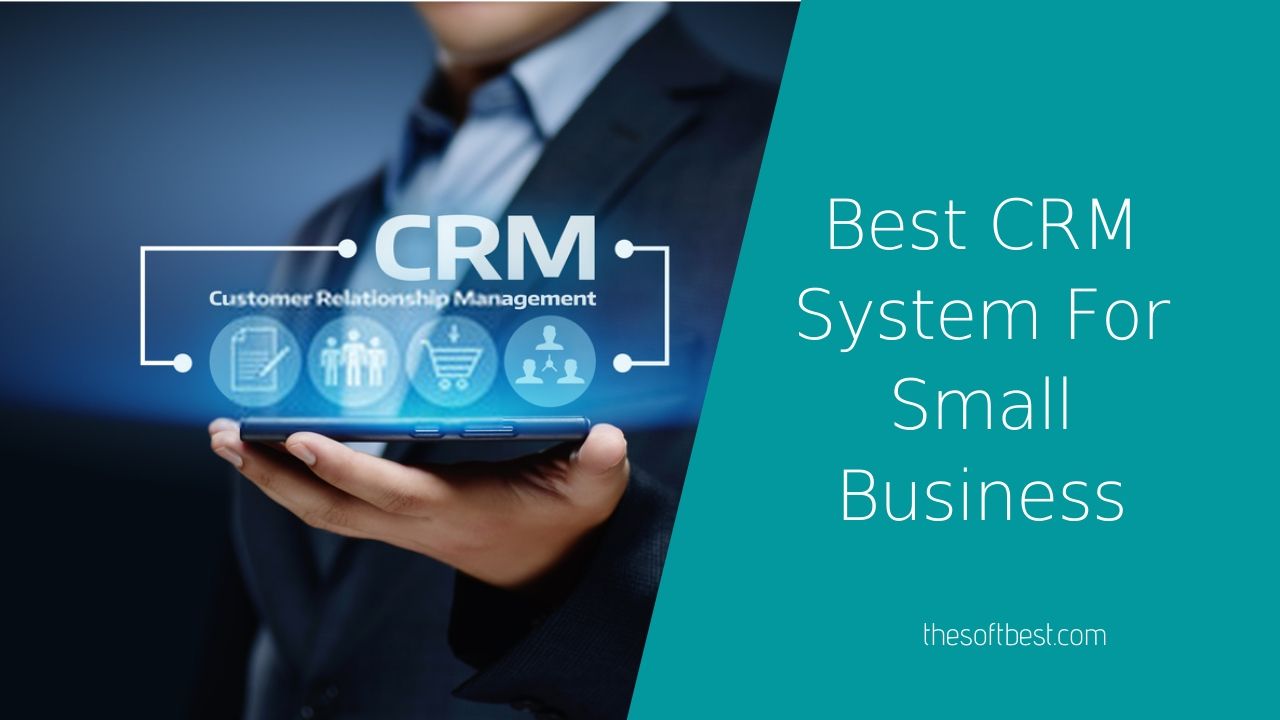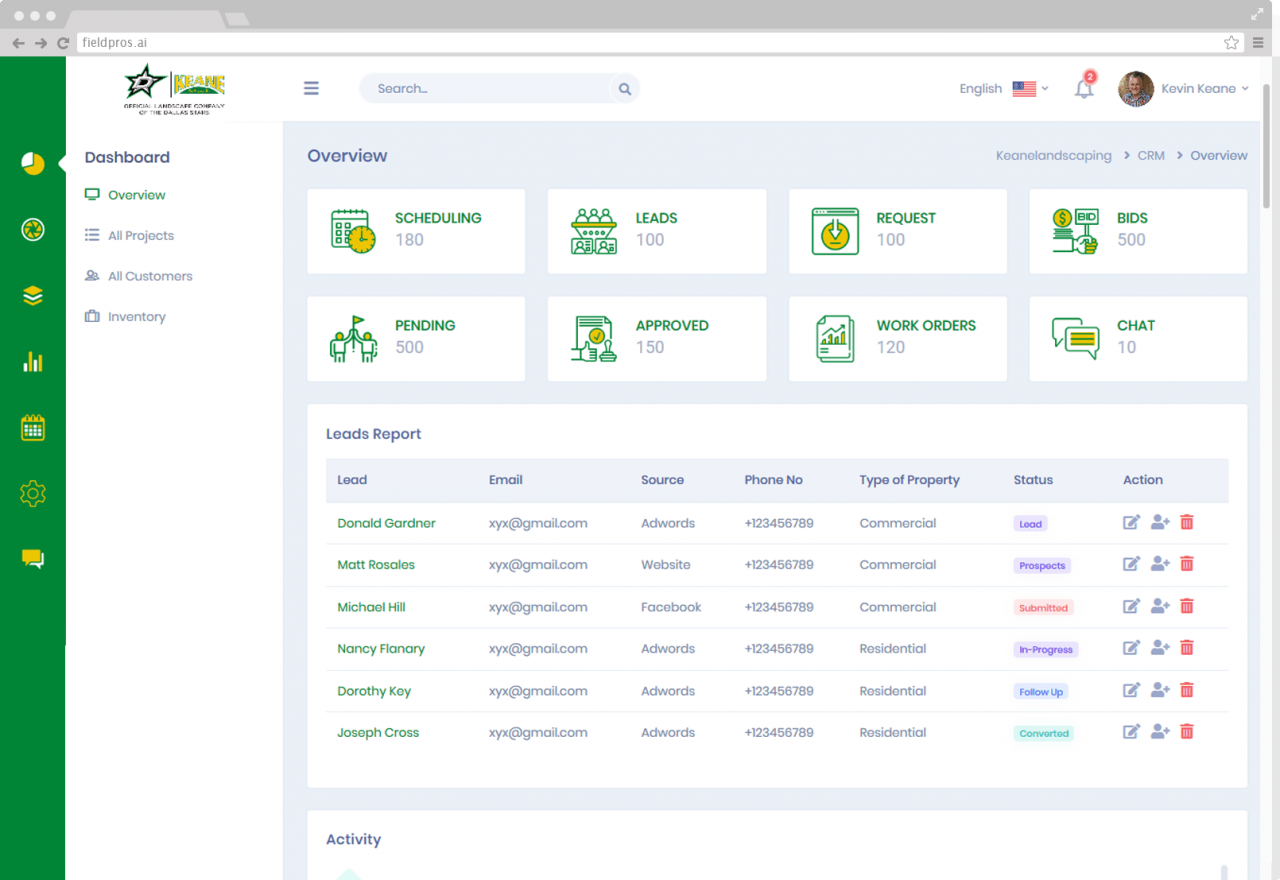In the competitive world of construction, small businesses face unique challenges in managing customer relationships and streamlining operations. CRM for small construction businesses offers a powerful solution, empowering them to overcome these obstacles and achieve success. Join us as we delve into the world of CRM, exploring its benefits, features, implementation, and more, to help you make informed decisions and elevate your construction business to new heights.
From enhanced customer engagement to improved project management, CRM systems provide a comprehensive solution for small construction businesses seeking growth and efficiency.
Overview of CRM for Small Construction Businesses
Customer Relationship Management (CRM) systems are essential tools for small construction businesses to manage their customer interactions and streamline their operations. A CRM system can help businesses track leads, manage projects, schedule appointments, and generate invoices, all in one place.
There are many different types of CRM systems available, so it’s important to choose one that is right for your business. Some of the most popular CRM systems for small construction businesses include:
- Salesforce
- Zoho CRM
- HubSpot CRM
- Insightly
- Pipedrive
When choosing a CRM system, it’s important to consider the following factors:
- The size of your business
- The number of employees you have
- The types of projects you work on
- Your budget
Features to Look for in a CRM for Small Construction Businesses
Small construction businesses have unique needs when it comes to customer relationship management (CRM). A CRM system can help these businesses track leads, manage customer relationships, and streamline operations. However, not all CRM systems are created equal. It is important to choose a system that is designed specifically for the needs of small construction businesses.When choosing a CRM system, small construction businesses should look for the following features:
Lead Management
A CRM system should help small construction businesses track leads from initial contact to conversion. The system should allow businesses to capture lead information, such as name, contact information, and project details. It should also allow businesses to track the status of leads and schedule follow-up activities.
Contact Management
A CRM system should help small construction businesses manage their contacts. The system should allow businesses to store contact information, such as name, address, phone number, and email address. It should also allow businesses to track interactions with contacts, such as phone calls, emails, and meetings.
Project Management
A CRM system can help small construction businesses manage their projects. The system should allow businesses to track project details, such as start date, end date, budget, and status. It should also allow businesses to track tasks and milestones associated with projects.
Invoicing and Billing
A CRM system can help small construction businesses with invoicing and billing. The system should allow businesses to create invoices, track payments, and manage customer accounts.
Reporting
A CRM system should provide small construction businesses with reporting capabilities. The system should allow businesses to generate reports on leads, contacts, projects, and invoices. This information can help businesses track their progress and make informed decisions.
Comparison of CRM Systems, Crm for small construction business
There are a number of different CRM systems available on the market. The following table compares some of the most popular CRM systems for small construction businesses:| CRM System | Lead Management | Contact Management | Project Management | Invoicing and Billing | Reporting ||—|—|—|—|—|—|| Salesforce | Yes | Yes | Yes | Yes | Yes || HubSpot | Yes | Yes | Yes | Yes | Yes || Zoho CRM | Yes | Yes | Yes | Yes | Yes || Microsoft Dynamics 365 | Yes | Yes | Yes | Yes | Yes || Pipedrive | Yes | Yes | Yes | Yes | Yes |
Evaluating CRM Features
When evaluating the features of a CRM system, small construction businesses should consider the following factors:* The size of their business.Small businesses have different needs than large businesses. Choose a CRM system that is designed for the size of your business.
- The industry you are in.Construction businesses have unique needs. Choose a CRM system that is designed for the construction industry.
- Your budget.CRM systems can range in price from free to thousands of dollars per month. Choose a system that fits your budget.
- Your technical expertise.Some CRM systems are more complex than others. Choose a system that is easy to use and requires minimal technical expertise.
By considering these factors, small construction businesses can choose a CRM system that meets their specific needs.
Implementation and Best Practices
Implementing a CRM system in a small construction business requires careful planning and execution. Here are the key steps:
- Define goals and objectives:Clearly Artikel the reasons for implementing a CRM system and the desired outcomes.
- Select the right CRM software:Choose a CRM system that aligns with the specific needs and budget of your business.
- Data migration:Import existing customer data into the CRM system, ensuring accuracy and completeness.
- Train users:Provide comprehensive training to all users on how to effectively use the CRM system.
- Monitor and evaluate:Regularly track key metrics to measure the effectiveness of the CRM system and make necessary adjustments.
To maximize the effectiveness of a CRM system, consider the following best practices:
- Centralize customer data:Consolidate all customer-related information in one central location for easy access and management.
- Automate tasks:Leverage the CRM system’s automation features to streamline processes, such as lead generation, email marketing, and scheduling.
- Integrate with other tools:Connect the CRM system with other business tools, such as accounting software, project management tools, and communication platforms, to enhance data flow and efficiency.
- Foster collaboration:Encourage team members to actively use the CRM system to share information, track progress, and collaborate on projects.
Benefits of Using a CRM for Small Construction Businesses

Implementing a CRM system can provide numerous advantages for small construction businesses, including increased sales, improved customer satisfaction, and reduced costs.
By centralizing customer data, automating tasks, and streamlining communication, CRMs help businesses become more efficient and effective. This can lead to increased sales opportunities, better customer relationships, and reduced operating expenses.
Increased Sales
- Improved lead management: CRMs help businesses track and manage leads throughout the sales pipeline, ensuring that no potential customers slip through the cracks.
- Personalized marketing: CRMs allow businesses to segment their customer base and target marketing campaigns accordingly, increasing the likelihood of conversions.
- Upselling and cross-selling opportunities: CRMs provide insights into customer purchase history and preferences, enabling businesses to identify opportunities for upselling and cross-selling additional products or services.
Improved Customer Satisfaction
- Enhanced communication: CRMs facilitate seamless communication between businesses and customers, ensuring that inquiries are addressed promptly and effectively.
- Personalized customer service: CRMs provide a comprehensive view of each customer’s interactions with the business, enabling personalized and proactive customer service.
li>Improved customer retention: By tracking customer interactions and identifying potential issues, CRMs help businesses proactively address concerns and prevent customer churn.
Reduced Costs
- Automated tasks: CRMs automate repetitive tasks such as lead generation, email marketing, and appointment scheduling, freeing up valuable time for more strategic activities.
- Improved efficiency: By streamlining communication and processes, CRMs help businesses operate more efficiently, reducing overhead costs.
- Reduced errors: CRMs minimize the risk of errors by providing a centralized and structured platform for managing customer data and interactions.
Long-Term Impact
The benefits of using a CRM for small construction businesses extend beyond the immediate gains. By providing a solid foundation for customer relationship management, CRMs contribute to the long-term growth and profitability of the business.
By fostering stronger customer relationships, CRMs help businesses build a loyal customer base that drives repeat business and positive word-of-mouth. Additionally, the insights gained from CRM data can inform strategic decision-making, enabling businesses to adapt to changing market conditions and stay competitive.
Tips for Choosing the Right CRM for Your Business

Selecting the right CRM system for your small construction business is crucial for maximizing its benefits. Here are some key factors to consider and a checklist of questions to ask potential vendors.
Factors to Consider
- Business size and needs:Choose a CRM that aligns with the scale and complexity of your operations.
- Industry-specific features:Look for CRMs tailored to the construction industry, offering features like project management, estimating, and subcontractor management.
- Scalability:Consider the future growth potential of your business and choose a CRM that can scale accordingly.
- Ease of use:The CRM should be user-friendly and intuitive for all team members.
- Integration capabilities:Ensure the CRM can integrate with other software you use, such as accounting, project management, and scheduling tools.
- Cost:Determine your budget and choose a CRM that fits within it.
Checklist of Questions for Vendors
- What industry-specific features does your CRM offer?
- How does your CRM support project management and collaboration?
- Can your CRM integrate with our existing software?
- What training and support do you provide?
- What are the pricing options and payment terms?
- Can you provide references from similar construction businesses?
By carefully considering these factors and asking the right questions, you can choose a CRM that empowers your small construction business to streamline operations, improve communication, and grow profitably.
Ending Remarks

By embracing CRM, small construction businesses can transform their operations, foster lasting customer relationships, and set the stage for long-term success. With the right CRM system in place, you’ll gain a competitive edge, optimize your processes, and unlock the full potential of your business.
FAQ Explained
What are the key benefits of CRM for small construction businesses?
CRM systems streamline operations, improve customer relationships, and provide valuable insights to help businesses make informed decisions.
What features should small construction businesses look for in a CRM system?
Essential features include contact management, project tracking, lead generation, and reporting capabilities.
How can small construction businesses successfully implement a CRM system?
Successful implementation involves defining clear goals, choosing the right system, training staff, and integrating the CRM with existing business tools.